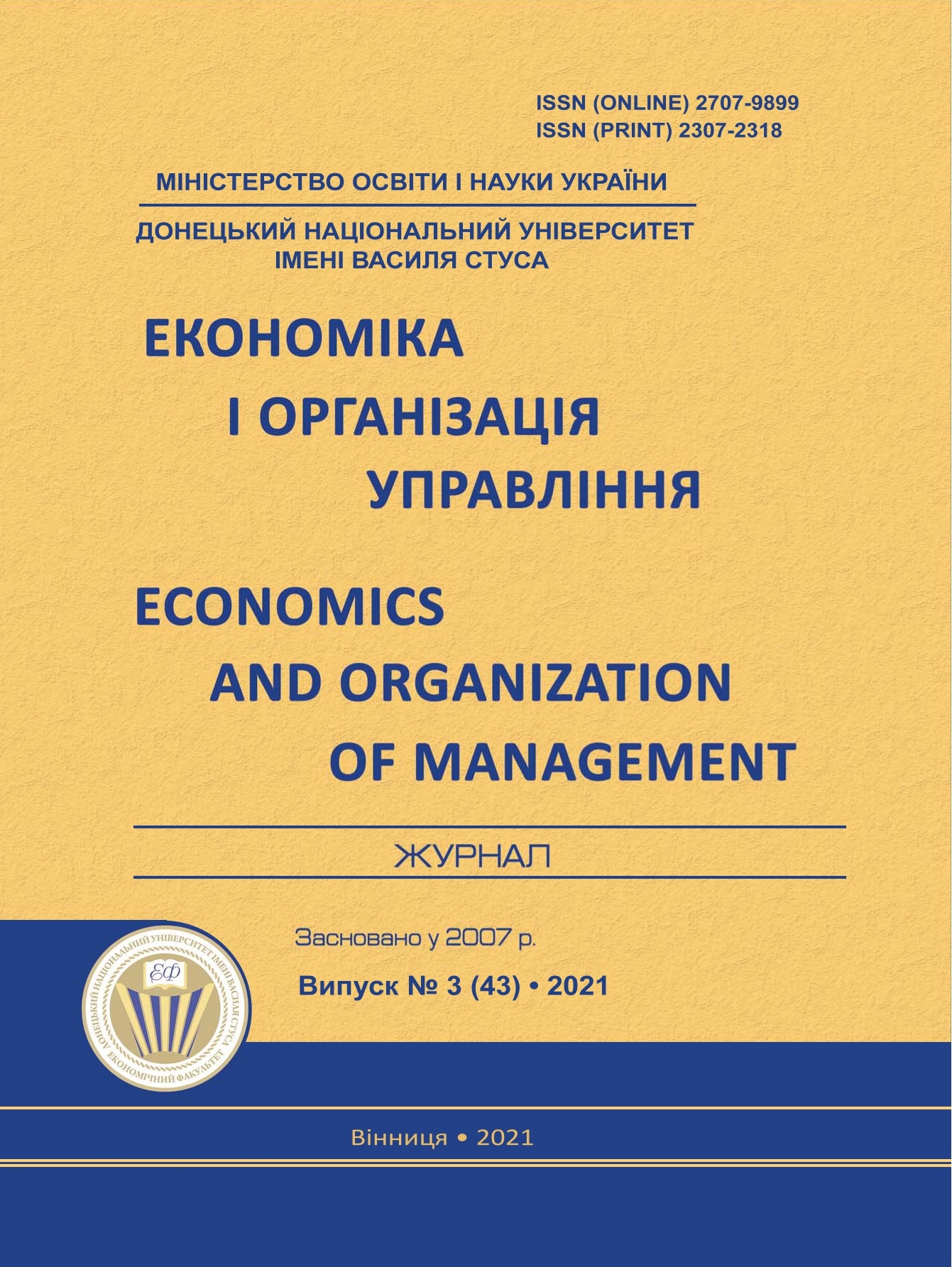Staff competence: theoretical fundamentals, ways of evaluation and improvement
DOI:
https://doi.org/10.31558/2307-2318.2021.3.18Keywords:
competence; expertise; professionalism; advanced training; personal development; personnel managementAbstract
This article examines the theoretical foundations of the terms «competence» and «expertise». The analysis of various scientific approaches to interpretation of these concepts is carried out. Similar and distinctive features of competence and competence are noted, the own interpretation of each of them is deduced. Research on these categories has shown that competence is a person's ability to perform certain job responsibilities and to have special knowledge, skills and practical experience. In turn, expertises are certain character traits, specific skills and abilities that form a person's competence. It can be concluded that various expertises are the formative basis of competence. The standard classification of types of competence is given and the list of the basic expertises which are a part of each type of competence is deduced. Scientists generally consider four basic types of competence: individual, special, social and leader. Each of these competencies has certain characteristics and expertises, some of which are part of several types of competencies. The components of the process of forming a human's personal competence were noted. The author proposes an algorithm for assessing the level of competence of enterprise's employees.
References
Balabanova L.V., Sardak O.V. (2011) Personnel management. Textbook. Kyiv: Tsentr uchbovoi literatury.
Solomanidina T.O. (2016) Motivation and stimulation of labor activity. Moskow: Yurait.
Sait «HR-Liga» [Site «HR-Liga»]. Retrieved from: https://hrliga.com/index.php?module=profession&op=view&id=1477
Volgin N.A. (2003) Social policy: Tutorial. Moskow: Ekzamen.
Turchaninova T.V. (2010) Essence, structure and conditions for the formation of professional competence of a social worker. Molodoj uchenyj, 4 (15), 377-380.
Ismailova B.H. (2012) Professional competence as an object of assessment. Molodoj uchenyj, 4 (39), 414-417.
Sait naukovoho zhurnalu «NovaInfo» [Site of a scientific journal «NovaInfo»]. Retrieved from: https://novainfo.ru/article/2169
Safaraliev B.S. (2016) Public relations in social and cultural activities: a dictionaryreference book for students. Chelyabinsk: Chelyabinsk State Institute of Culture.
Kostenko О.Е. (2009) Professional and ethical foundations of social work: a glossary of terms. Omsk: OMGU.
Sait zhurnalu «Shtat» [Site of a journal «State»]. Retrieved from: http://www.hrmedia.ru/node/1626
Sait «Korporatyvnyi menedzhment» [Site «Corporate management»]. Retrieved from: https://www.cfin.ru/encycl/competency.shtml
Chulanova O.L. (2018) Personnel Competence Management: Textbook. Moskow: INFRAM.
Sait «HR-Liga» [Site «HR-Liga»]. Retrieved from: https://hrliga.com/index.php?module=profession&op=view&id=1411
Sait internet-vydannia «Sehodnia Lifestyle» [Site of the online edition «Today Lifestyle»] Retrieved from: https://lifestyle.segodnya.ua/lifestyle/psychology/must-kompetencii-narabote-chto-eto-i-kak-ih-razvivat--1063804.html
Sait kompanii «Otkritaia studyia» [Site «Open Studio»]. Retrieved from: http://openstud.ru/blog/for-businessmen/chief-competences/
Sait praktychnoho zhurnalu «Dyrektor po personalu» [Site of the practical magazine «Personnel Director»] Retrieved from: https://www.hr-director.ru/article/67079- kompetentnost-neobhodimoe-uslovie-effektivnosti-18-m8
Sait zhurnalu «Kommercheskyi dyrektor» [Site of the magazine «Commercial Director»]. – Retrieved from: https://www.kom-dir.ru/article/2618-kompetentnost-sotrudnikov

